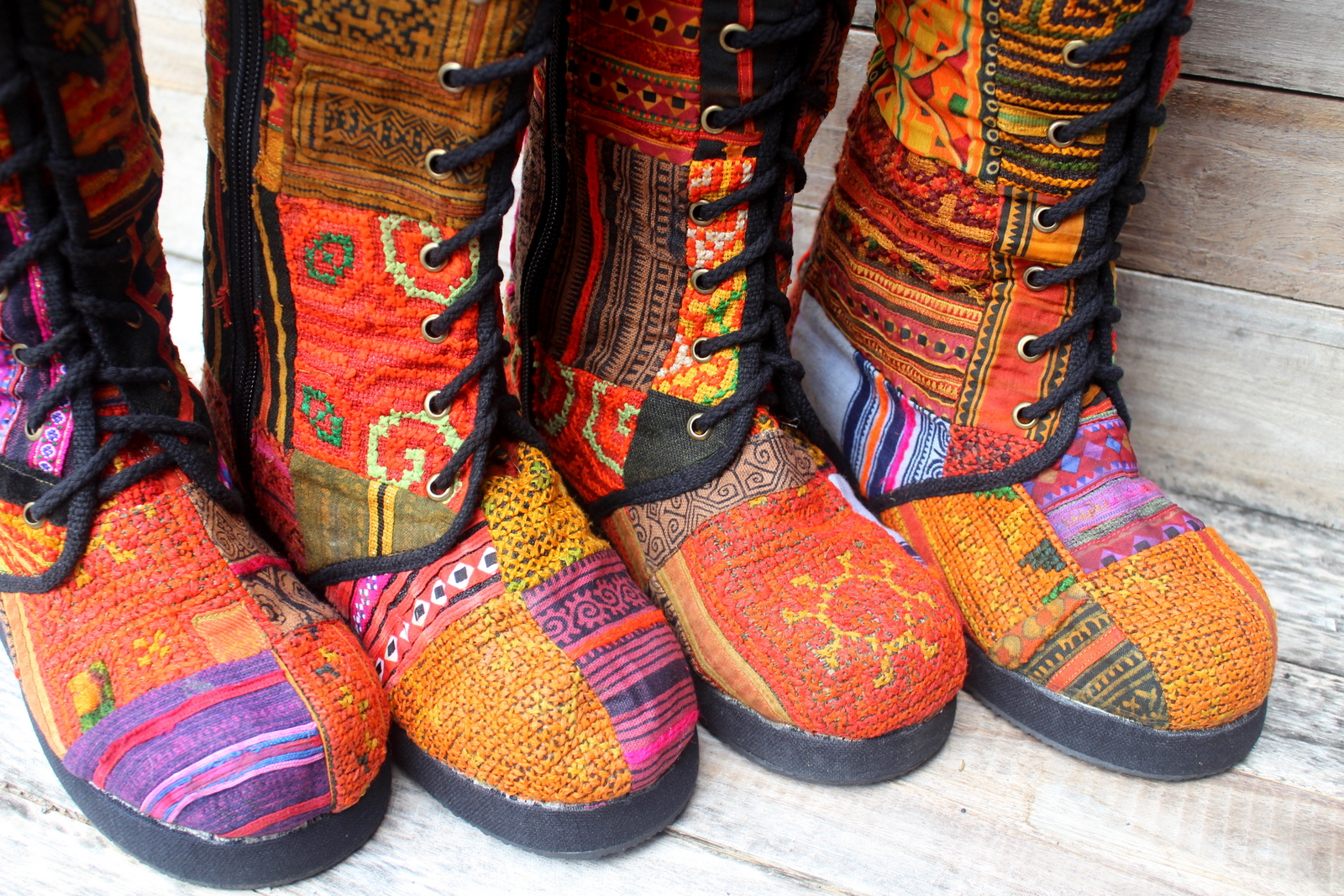 |
History In A Pair Of Boots
All those little squares of Hmong embroidery, batik and appliqué,
each with a unique story. A tale of the Hmong woman who created it long ago.
Batik and embroidery skills are passed down from mother to daughter. In Hmong
history most girls sewed their own clothes. The girls first learn to
embroider, followed by appliqué and then batik.
Some women start with
the cotton fiber grown in their own fields, spin the fiber, and weave the
cloth, sometimes in intricate patterns. This is just the beginning. Natural
indigo and other dye plants are grown, gathered, and prepared. The cotton is
dyed in the indigo vat numerous times to create a deep, almost black,
color.
For the Hmong New Year’s celebration they still dress
up in their best embroidered clothes to be seen in public with friends, and enjoy
courtship games of ball tossing with boys. On New Year’s Day, a Hmong family
wears their new clothes to celebrate the festivities. This is believed to bring
good luck, health and prosperity.
Great time and love goes into making baby carriers and hats
that act as talismans to protect the child. Embroidered
symbols chosen for good health and fortune, while bells and pom-poms
ward off evil.
The Butterfly Mother is important in the creation mythology
of the Hmong (Miao), so the butterfly symbols used on baby carriers hold
specific importance. The legend tells that the gods created the earth and
planted many maple trees. A butterfly flew from one maple tree and laid 12
eggs. One of the eggs hatched and gave birth to Jian-ian, who gave humans the
ability to procreate. The butterfly is therefore the creator of all living
beings bringing children good luck and health, while granting women the
power of fertility.
 |
| http://www.siamesedreamdesign.com/apps/webstore/products/show/4073186 |
So when I look at our Hmong patchwork boots, I will think of the
women’s stories behind every one of those pieces of textile art.
Barbara







